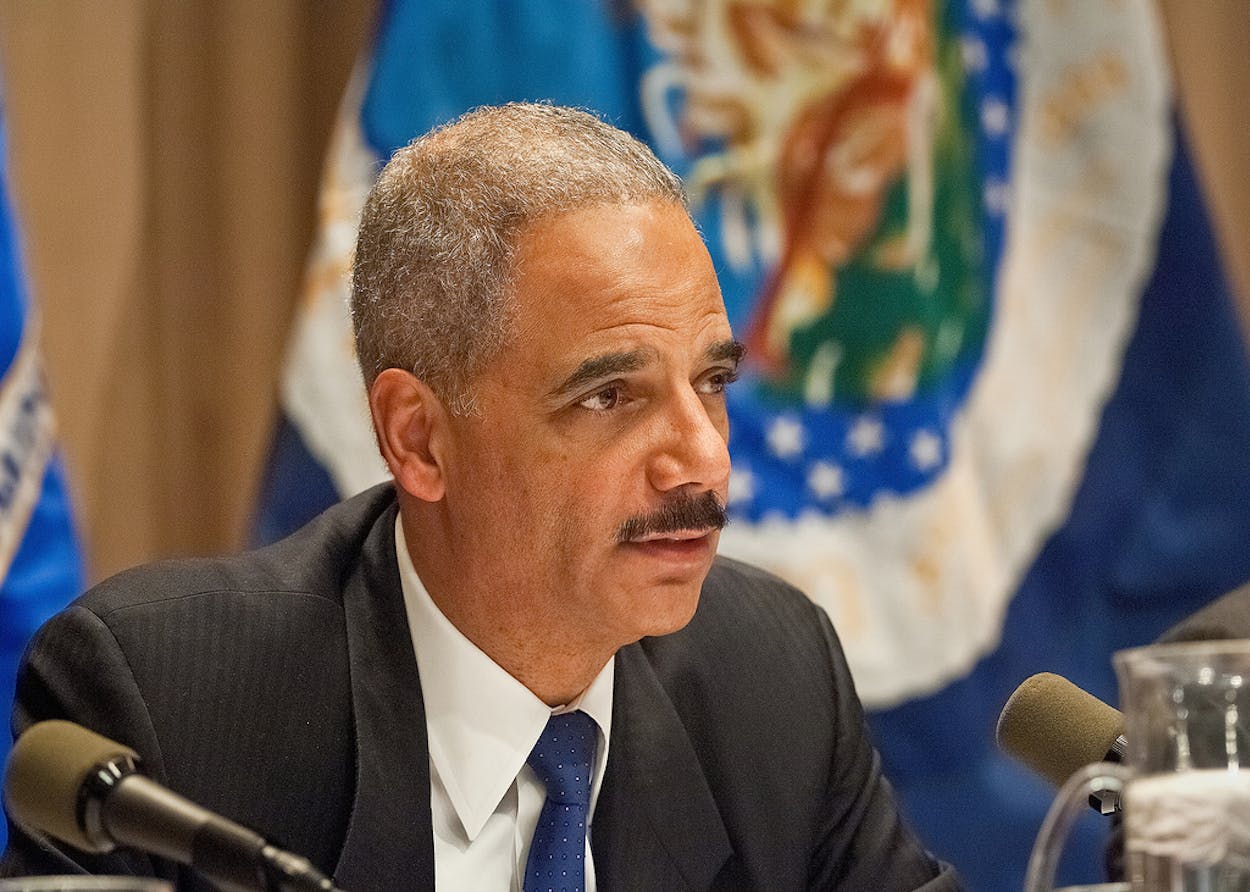Prepared speeches by government officials aren’t usually high on drama, but there was some strong political symbolism at work when U.S. Attorney General Eric Holder decided to speak in Austin at the libary of Lyndon B. Johnson, the president who signed the Voting Rights Act, as Texas’ compliance with the law is being argued over in federal court.
But while redistricting is front-of-mind for state politicians, Holder devoted as much, if not more, attention to the issue of Voter ID laws. As Julian Aguilar of the Texas Tribune reported, “Texas’ voter ID law, which requires that voters furnish a state-issued photo ID before casting a ballot, is scheduled to take effect Jan. 1.” But the Department of Justice, which can review election laws, has not pre-cleared the law in part because, as Aguilar noted, the state and the DOJ are bogged down in data—the Justice Department has asked the state to provide details about registered voters both with and without valid IDs.
Regardless of how that process plays out, it’s clear where Holder stands. According to the Houston Chronicle‘s Gary Scharrer, Holder said “All citizens should be automatically registered to vote,” and “the single biggest barrier to vote in this country is our antiquated voting system.”
That echoed LBJ, who as Scharrer notes, said “It is wrong, deadly wrong to deny any of your fellow Americans the right to vote in this country,” when he took the Voting Rights Act before Congress in 1965.
Holder’s appearance drew its share of critics, including Senator John Cornyn, who, according to Aguilar, issued a statement accusing the Obama administration of targeting “efforts by the states to protect the democratic process,” instead of being focused on the economy.
The Houston-based tea party group “True the Vote” also advertised a rally to take place before Holder’s appearance. “ARE YOU READY TO HAVE UN BLUE HELMETS OUTSIDE YOUR POLLING PLACE?,” the organization’s flyer asked, a reference to the NAACP’s “Stand for Freedom” Pledge, which calls on the “United Nations to investigate and condemn voter suppression tactics.”
John Hinderaker at the conservative blog Powerline also enjoyed the symbolism of Holder speaking at the LBJ Library, albeit for very different reasons: “Lyndon Johnson signed the Voting Rights Act in 1965—Holder’s intended reference—but he is also associated with voter fraud.”
Holder and President Barack Obama’s administration also have critics from voter ID watchdogs. “They’ve been a little silent and mute on voter suppression and cutting back early voting and they’ve moved a little slow on redistricting,” John Brittain, a professor at the University of D.C.’s School of Law told Politico‘s Josh Gerstein.
- More About:
- Politics & Policy
- Voter ID
- LBJ
- Barack Obama







